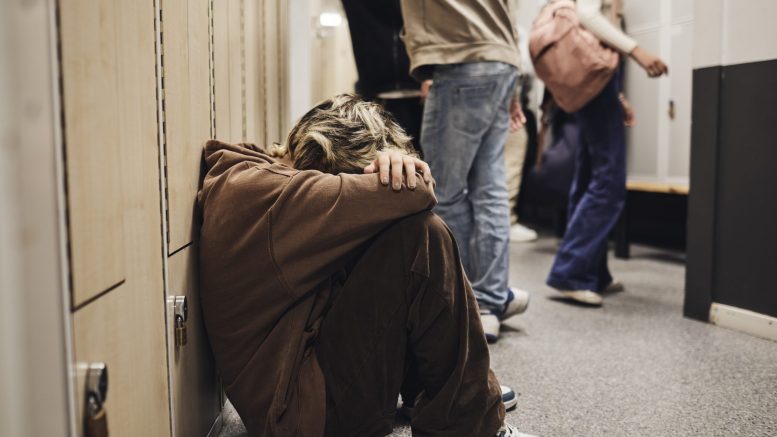As insurers reject coverage amid soaring anxiety and depression, a bill to help children and teens is quietly killed.
By Mark Kreidler, Capital & Main
This story is produced by the award-winning journalism nonprofit Capital & Main and co-published here with permission.
A proposal that would have increased the number of young Californians receiving needed mental health care died quietly in the Legislature last month. With no debate and no public comment, a bill that would have made it harder for insurers to reject mental health coverage to youth was placed “on suspense” by the powerful Assembly Appropriations Committee. That means it will no longer be considered.
That’s not revolutionary; it happens to bills all the time. But in this case, by the state’s own reckoning, the need for such mental health care is skyrocketing. Between 2016 and 2020, anxiety or depression diagnoses for children ages 3 to 17 in California rose by 70%, according to the Annie E. Casey Foundation. Only South Dakota saw a more dramatic rise during that period.
Instead of a valuable public discussion of the merits of investing in mental health care, though, Sacramento political insiders killed the bill. The reason? It would cost too much.
“They thought it was too expensive to move forward, essentially,” said Lishaun Francis, a director at the advocacy group Children Now, which sponsored the bill. “What that means is anyone’s guess. We don’t know why some things are shelved and not others.”
Francis was referring to the opaque work of the Appropriations Committee, which conducts its suspense-file business behind closed doors to avoid scrutiny and expedite what could otherwise be a lengthy process.
Meanwhile, more of the state’s younger residents linger without treatment. The COVID-19 pandemic drove anxiety and depression diagnoses for California children even higher than the already-elevated 2020 level, Francis said. Yet health insurance companies routinely deny such coverage, even when a doctor has recommended treatment.
Authored by Sen. Scott Wiener (D-San Francisco), SB 238 would have mandated that every such rejection of coverage, for Californians ages 26 and younger, be appealed to the state’s Independent Medical Review program. In 2022, nearly 80% of the rejections of youth mental health coverage appealed to the IMR were overturned, meaning the patients ultimately received the care they needed.
But only a tiny fraction of all rejections are appealed. Unless a patient or their family understands how to work the IMR process on their own, their denials of service will continue. That is the current law.
This isn’t just a matter of procedure; it represents wildly unequal access to care. The appeals do not remotely reflect California’s diverse population: Call center records maintained by the state’s Department of Managed Health Care (DMHC) show that between 2020 and 2022, 94% of IMR appeals were filed in English and roughly 4% in Spanish.
Immigrant working families and English second language families are far less likely to appeal, and therefore to remain without coverage their kids need, Wiener and Francis say. (Researchers at the Kaiser Family Foundation reported in 2021 that HealthCare.gov consumers appealed fewer than two-tenths of 1% of their denied in-network claims.)
Wiener said in a statement to Capital & Main that he is considering for next year new legislation to address the denial of youth mental health coverage. “We can’t afford to allow insurers to unjustly deny them access to care,” the senator wrote.
So why was the measure shelved? Because despite the cat-and-mouse game that health providers play with California regulators, the state’s own agencies know that a massive number of appeals would be triggered if SB 238 became law — and the Appropriations Committee decided the price to handle that increased volume was too high.
Although California medical providers are not required to tell the state how many times they reject coverage of recommended medical care, regulators can estimate that total, a spokesman for the DMHC said.
A state benefits review program figured that 4.3 million California commercial policyholders would have been subject to the reforms mandated by SB 238, said DMHC spokesman Kevin Durawa. The agency then used historical IMR data to project how many appeals would follow — that is, how many young patients whose mental health needs were rejected by their own providers would have their cases rerouted to state review.
The answer: massive numbers of cases. Durawa said that “even conservative estimates” put the fiscal impact of SB 238 on the state at tens of millions of dollars over an indefinite period of time, due in large measure to the cost of ramping up the IMR program and further processing the successful appeals, including additional staffing and “other implementation and enforcement activities that would be expected if the bill was enacted.”
That would explain why medical providers forcefully opposed Wiener’s proposal, and why they don’t want their numbers made public, Francis said. They’re saving money by simply refusing to cover mental health treatments, knowing that the current appeals system won’t make a dent in their profit margin. The low number of appeals means it’s still good business to deny the service and take their chances.
Francis said Children Now will huddle and decide how to proceed. Wiener may make another pass at legislation. The irony is that it costs serious money to right this wrong because the need is so high. The cost, not the need, got Wiener’s proposal shelved last month.
“It isn’t that we don’t have laws saying what the kids in California need,” Francis said. “It’s that we don’t have accountability to be sure these things are happening.” For now, that isn’t going to change.
Copyright Capital & Main 2023


Be the first to comment on "No help for California youths denied mental health care"